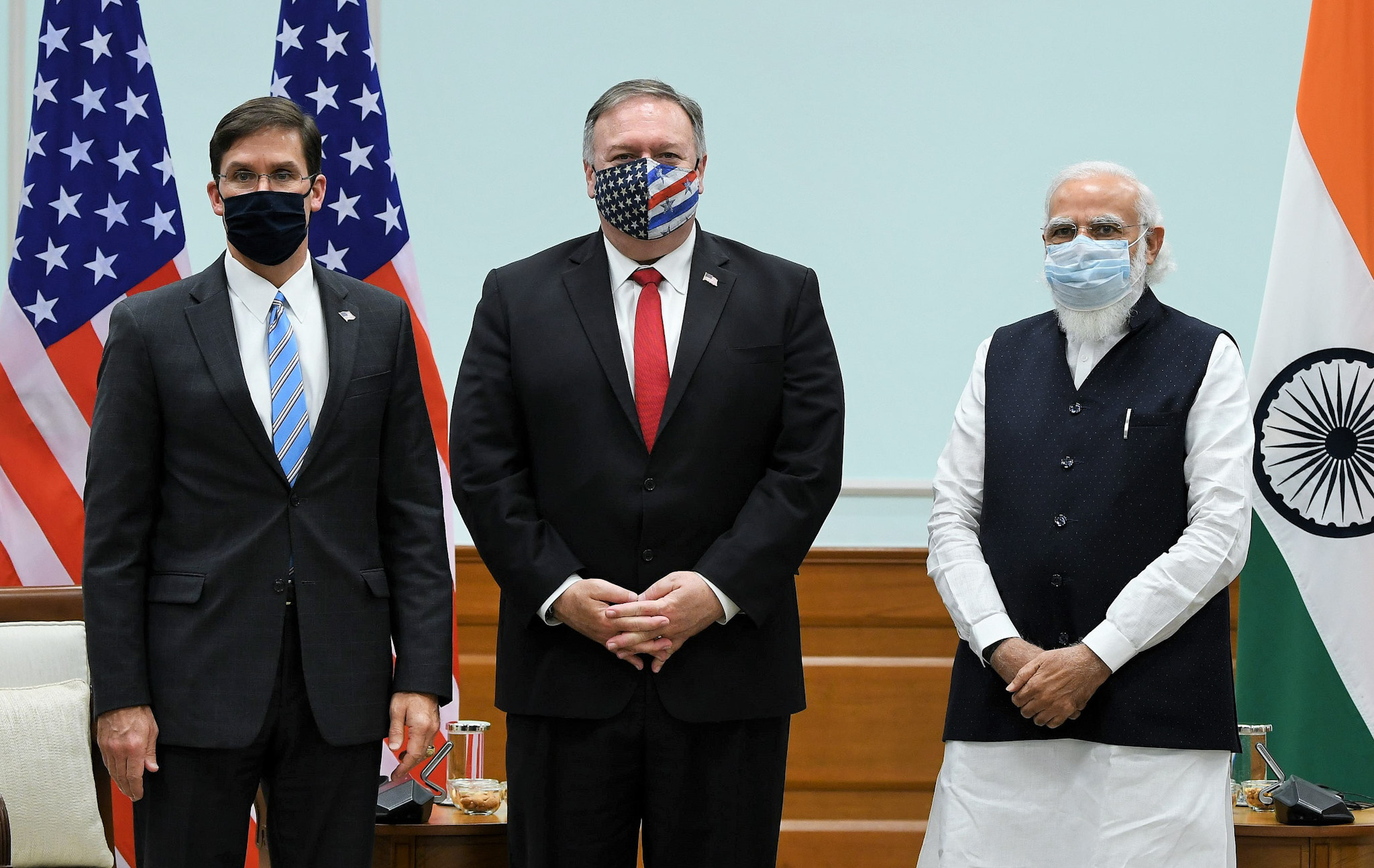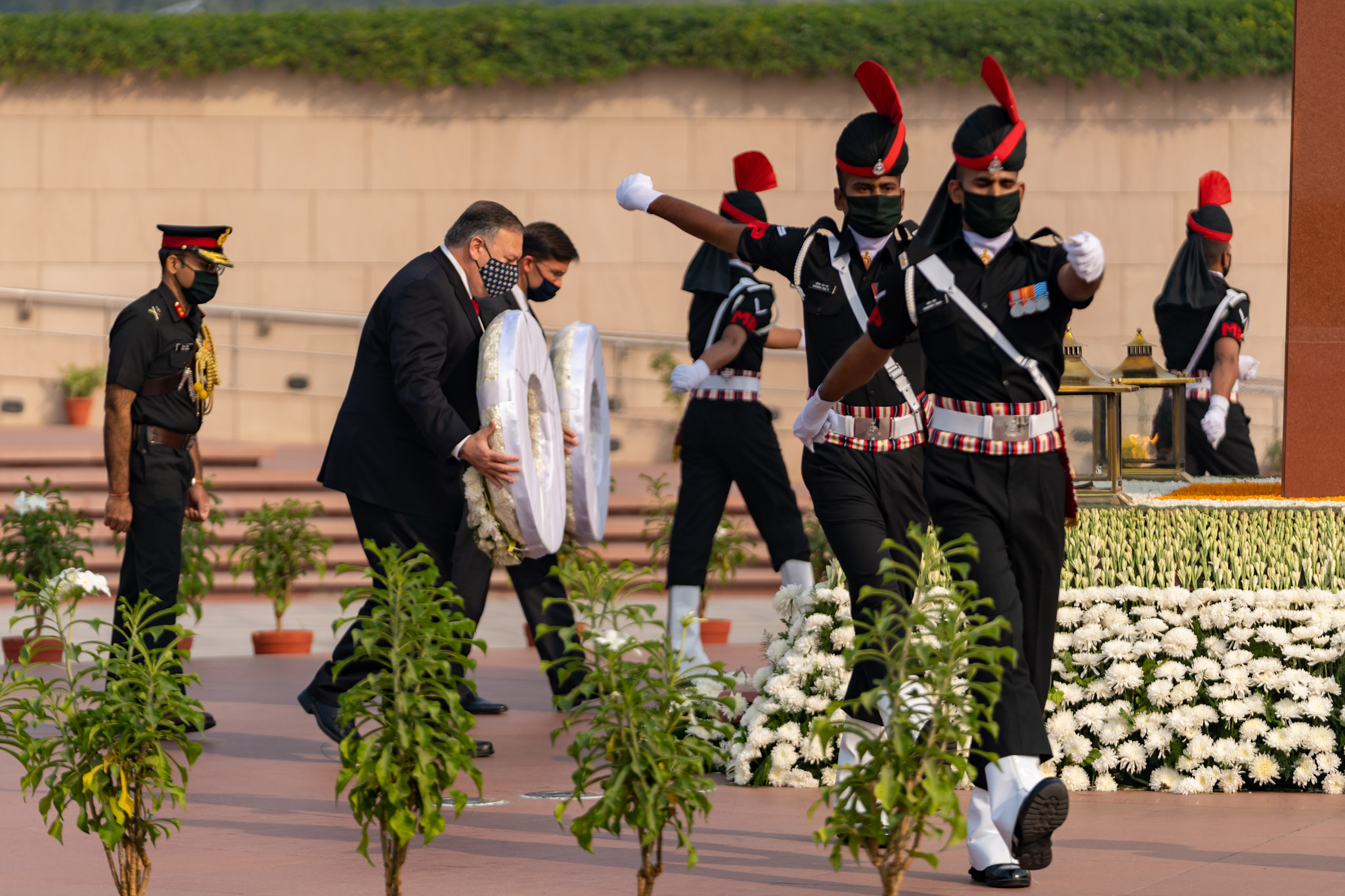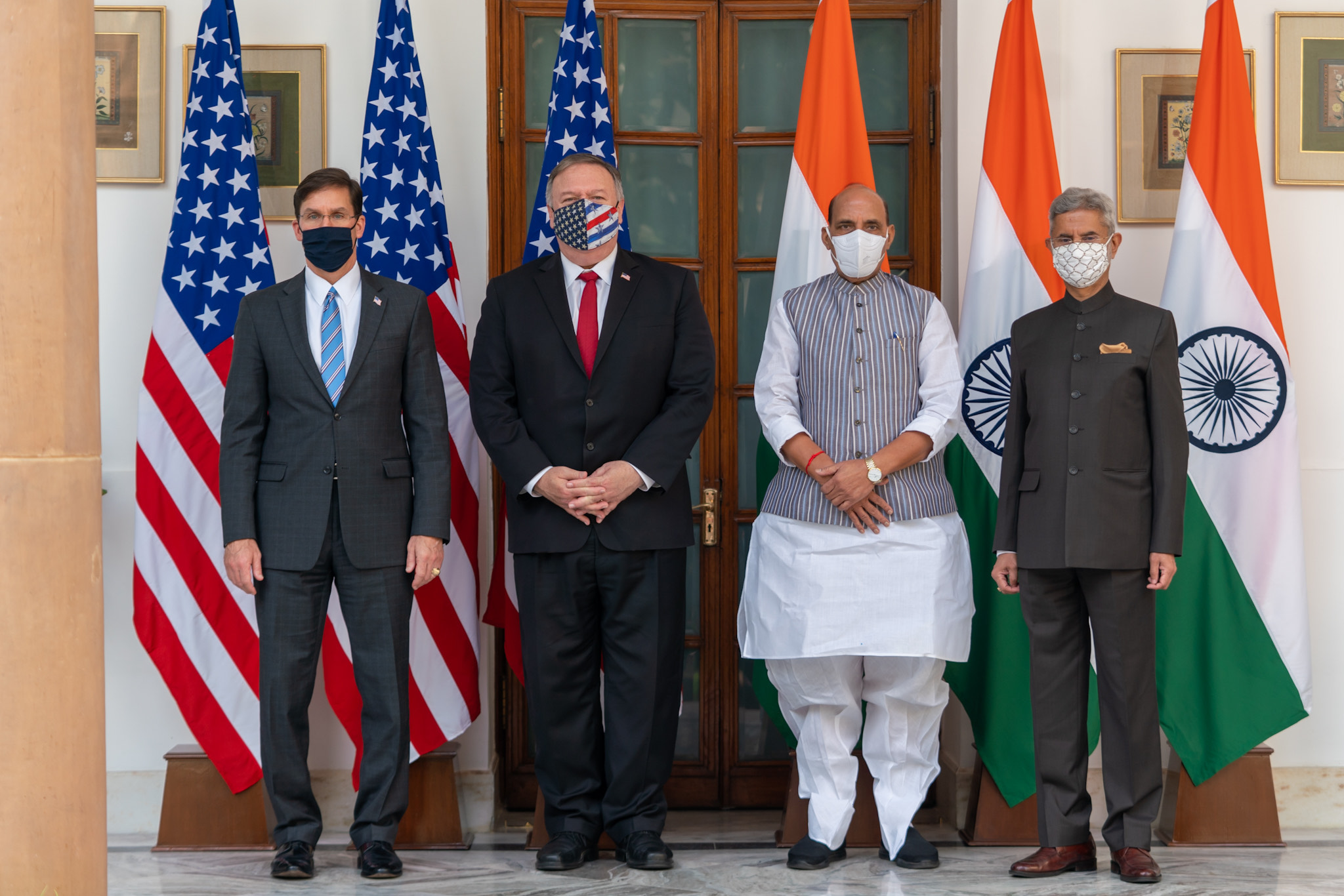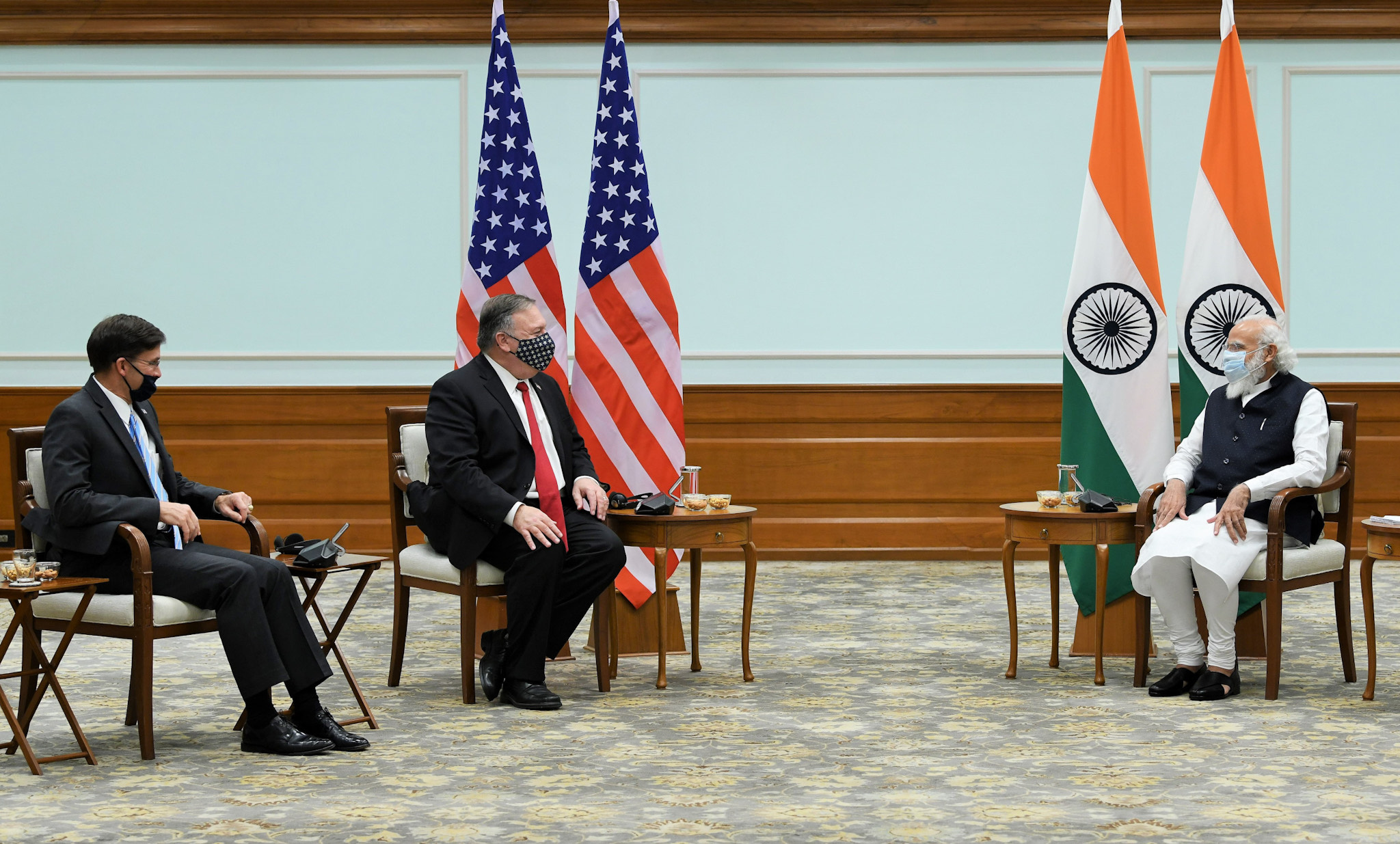
During US Secretary of State, Mike Pompeo’s, visit to India earlier this week, he emphasised the “strong and growing bilateral relationships with India” whilst also condemning China’s Communist Party, stating;
"The CCP is no friend to democracy, the rule of law, transparency, nor to freedom of navigation — the foundation of a free and open and prosperous Indo-Pacific".
This visit is Pompeo’s fourth during the Trump administration and follows US President Donald Trump’s visit earlier this year. During this trip Pompeo spoke on a range of issues including increased cooperation on defence, energy, and trade between the two countries.
Increased defence cooperation

The US State Department has stated that the “U.S. and Indian services are expanding the scope and complexity of military exercises and increasing liaison” between the two countries.
They note that in July 2020, the Indian Navy successfully completed a passing exercise (PASSEX) with the US Navy as the Nimitz Carrier Strike Group transited through the Indian Ocean Region. In 2019, the US and India also held their first-ever tri-service exercise, Tiger Triumph.
The State Department further stated that during Pompeo’s meeting he discussed expanding “information-sharing, defence trade, joint service coordination, and interoperability”. They further referred to the upcoming MALABAR naval exercise and the “Basic Exchange and Cooperation Agreement”, which seeks to “expand geospatial information sharing”.
Pompeo’s visit follows a spike in tensions between India and China following a border dispute in the Himalayas, in June, where 20 Indian troops were killed in hand-to-hand combat with Chinese soldiers.
Pompeo and U.S. Defense Secretary, Mark Esper, both laid wreaths at a war memorial in New Delhi, after which Pompeo, stated that the was thinking of the 20 soldiers killed in June.
The State Department also makes reference to the Quadrilateral Security Dialogue Alliance’s (referred to as QUAD) recent meeting in Tokyo and applauded India on its upcoming term on the United Nations Security Council.
The State Department maintained that it would “continue to support India’s permanent membership of that body”. They also maintained that they would work with India to ensure that peace negotiations in Afghanistan were successful.
QUAD is an informal strategic forum between the United States, Japan, Australia, and India that is maintained by semi-regular summits, information exchanges and military drills between member countries.
Improving Trade

Commenting on trade, the State Department maintained that the US was able to “reach an understanding on improving market access, removing barriers to trade, and improving the business environment” with India.
The State Department further stated that they look forwards to further collaboration “between USAID (United States Agency for International Development) and India’s Development Partnership Administration (DPA)” and the establishment of a “permanent presence of the U.S. International Development Finance Cooperation (DFC) in India this year”.
COVID response

The US and India both expressed gratitude for mutual exchanges in COVID relief noting that India had received 200 ventilators provided by the (USAID) whilst the US had received from India “Personal Protective Equipment (PPE), essential medicines, and therapeutics”.
The US also signed a “Memorandum of Understanding between the U.S. National Institute of Allergy and Infectious Diseases (NIAD/NIH) and the Indian Council of Medical Research (ICMR)” which seeks to further cooperation on infectious diseases including COVID-19 and other emerging threats.
